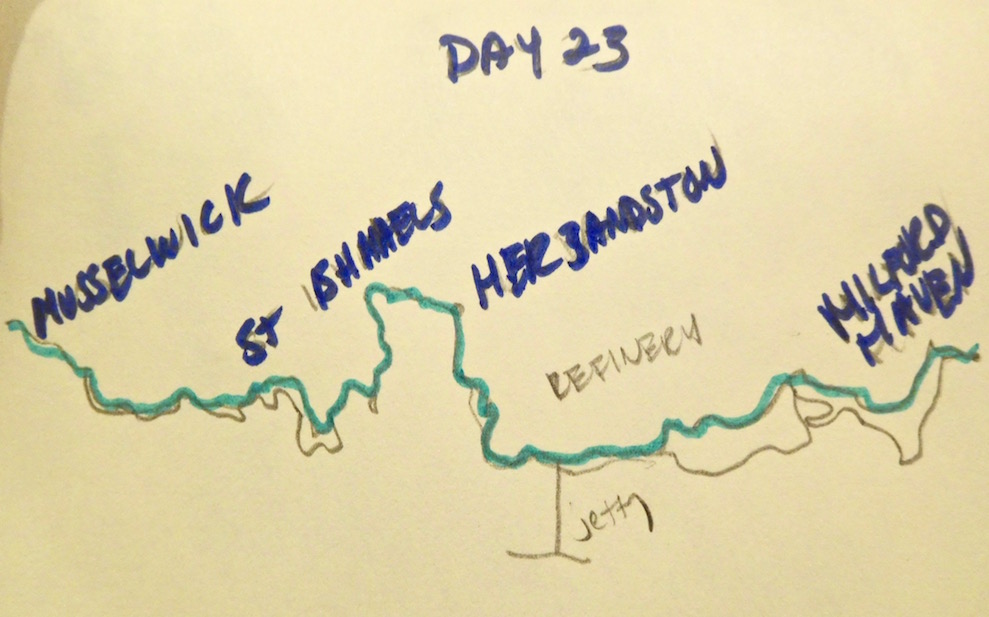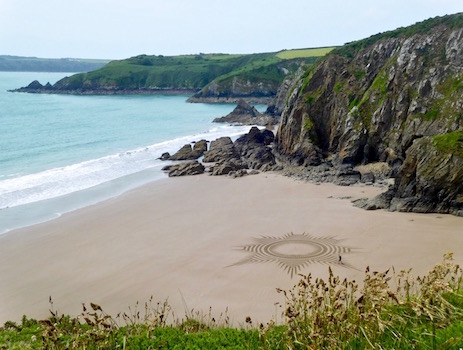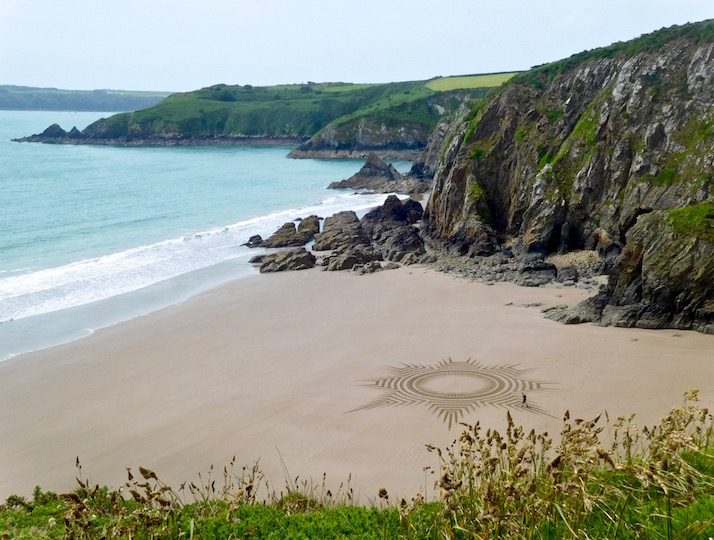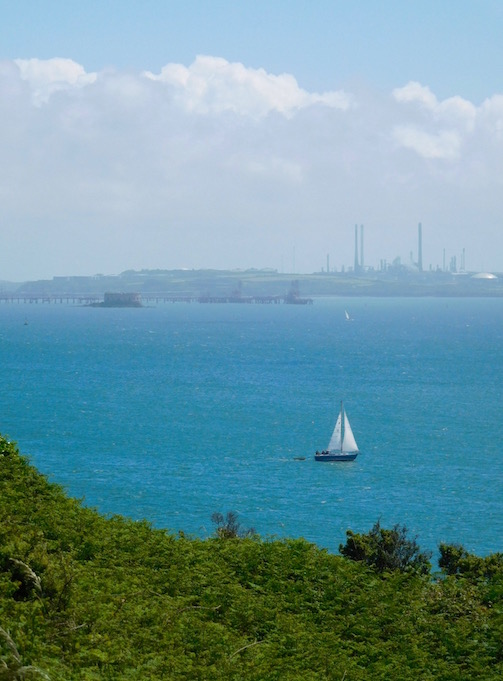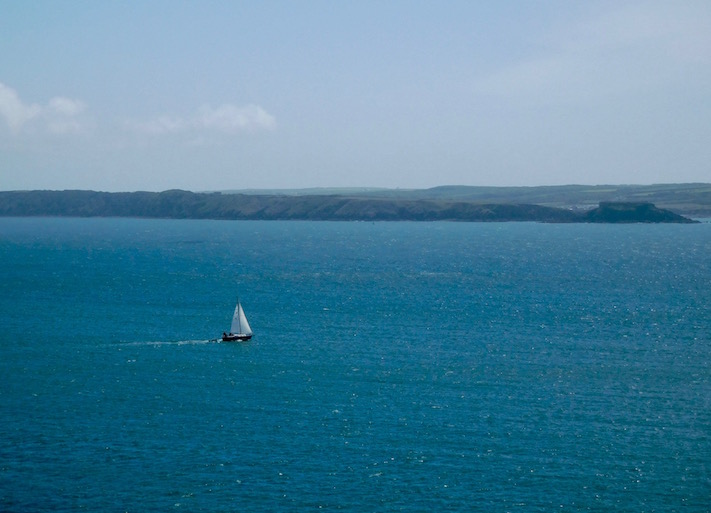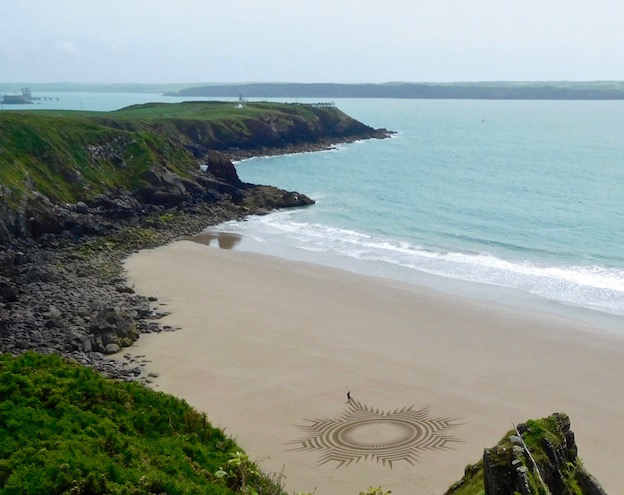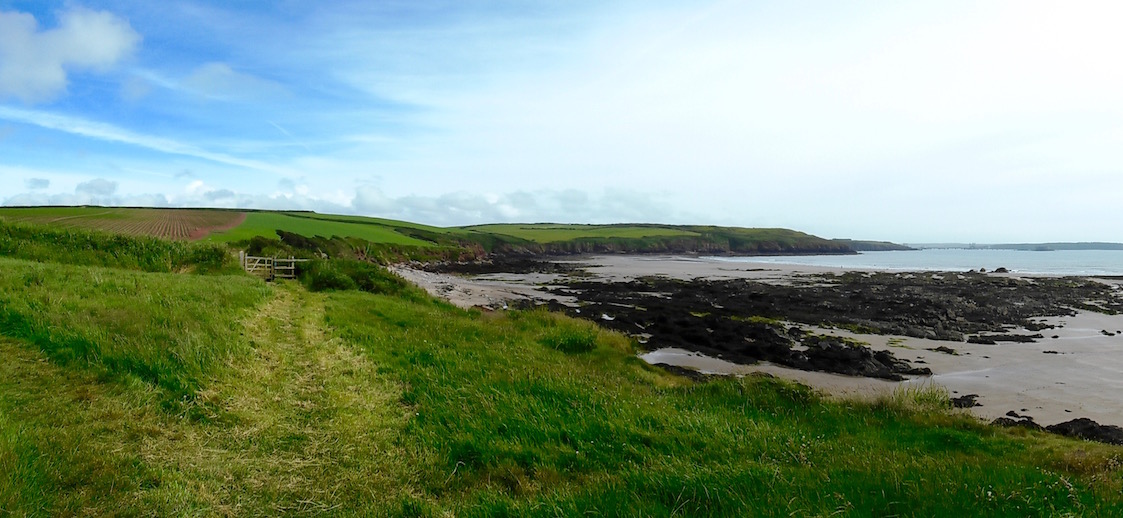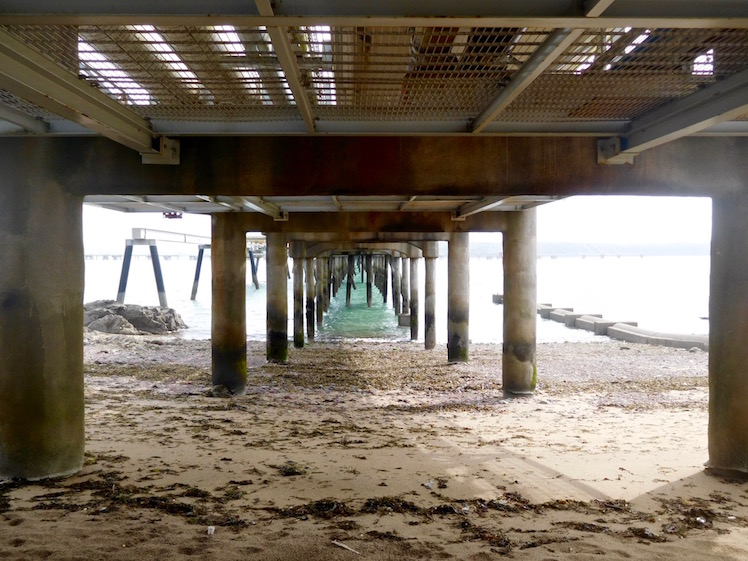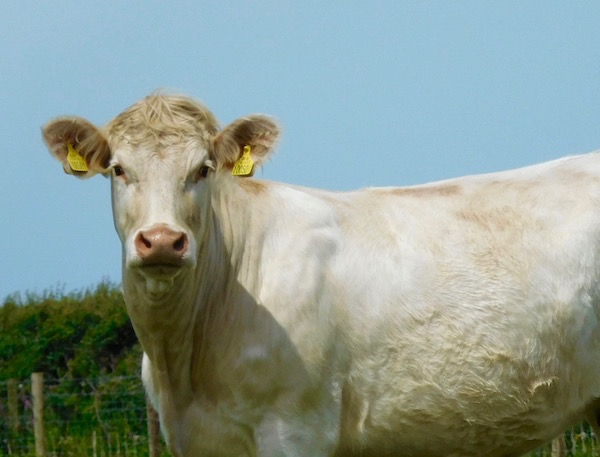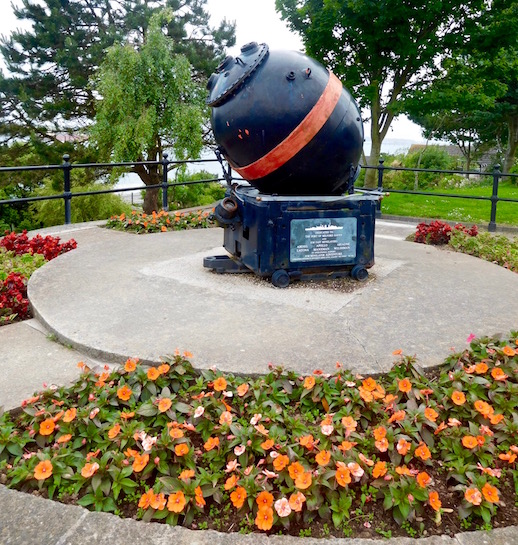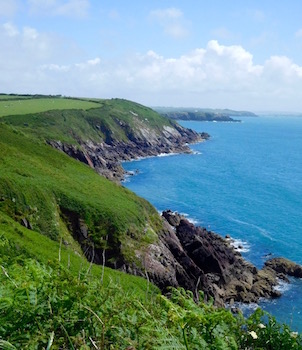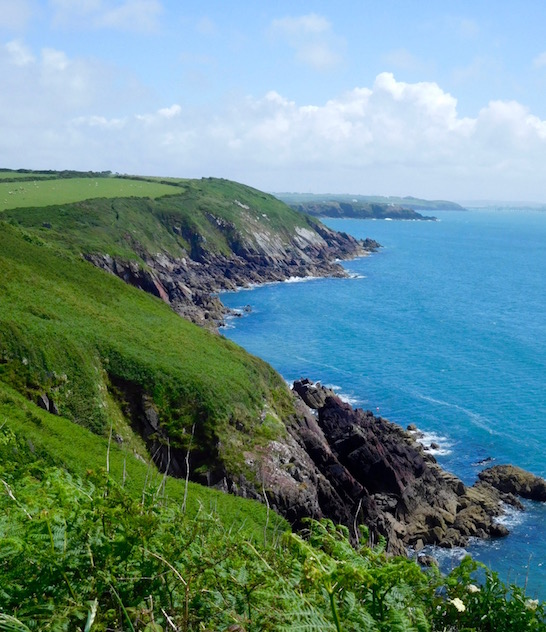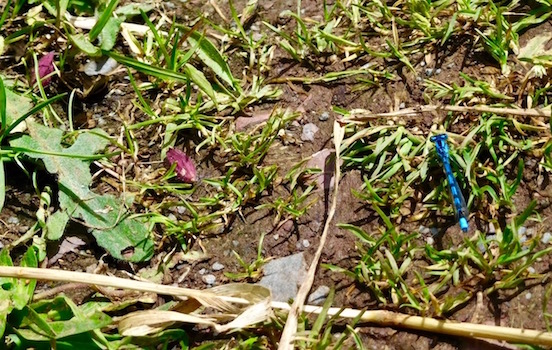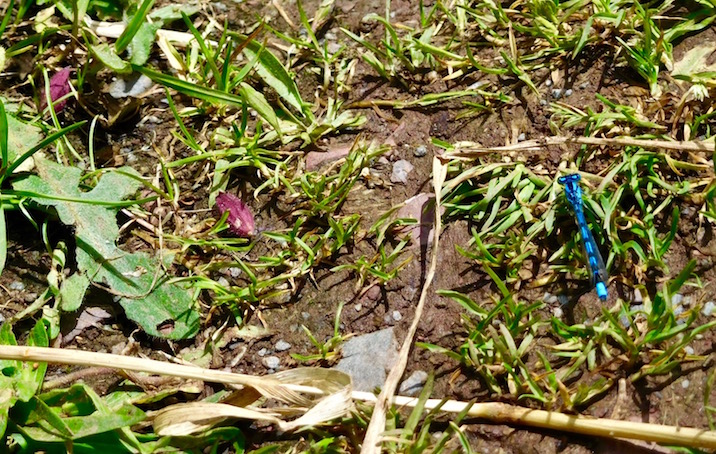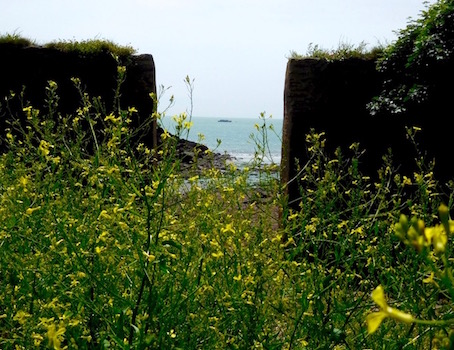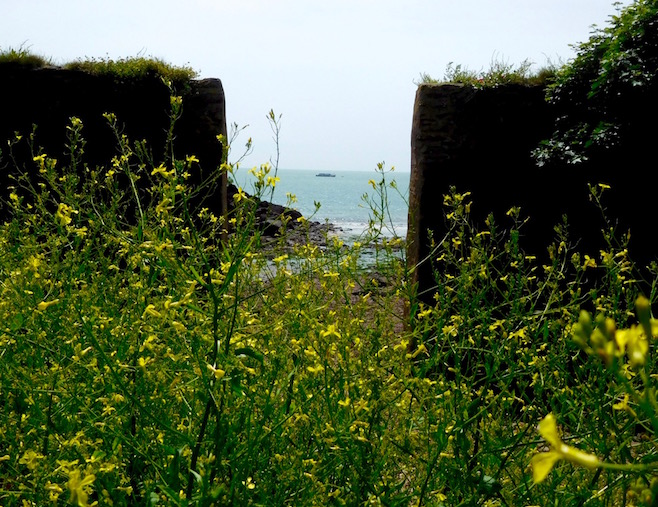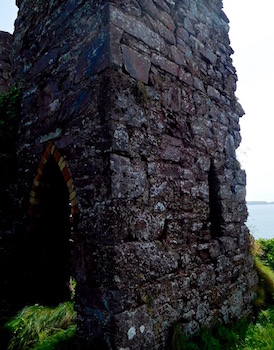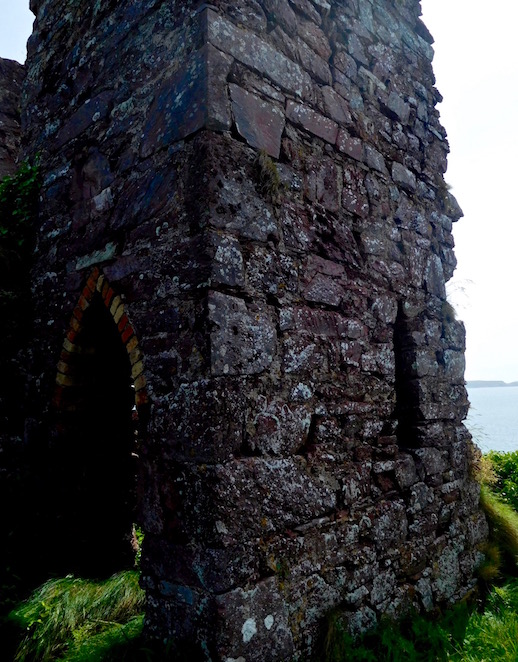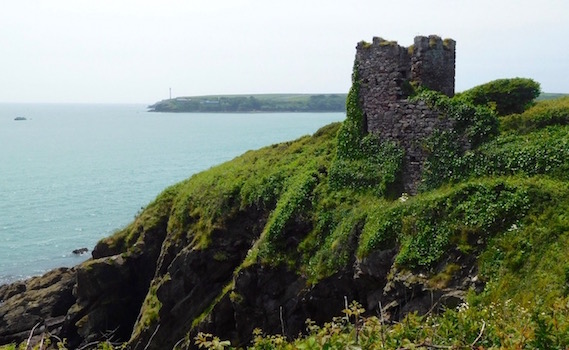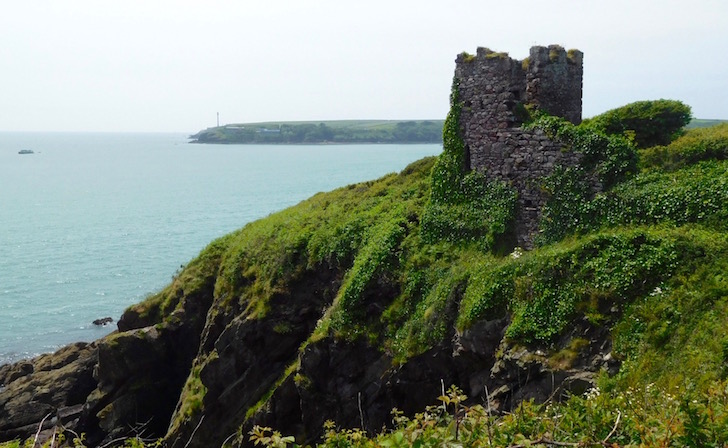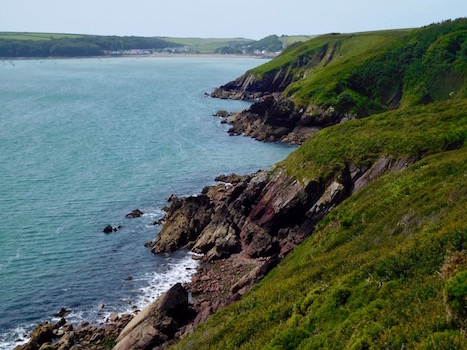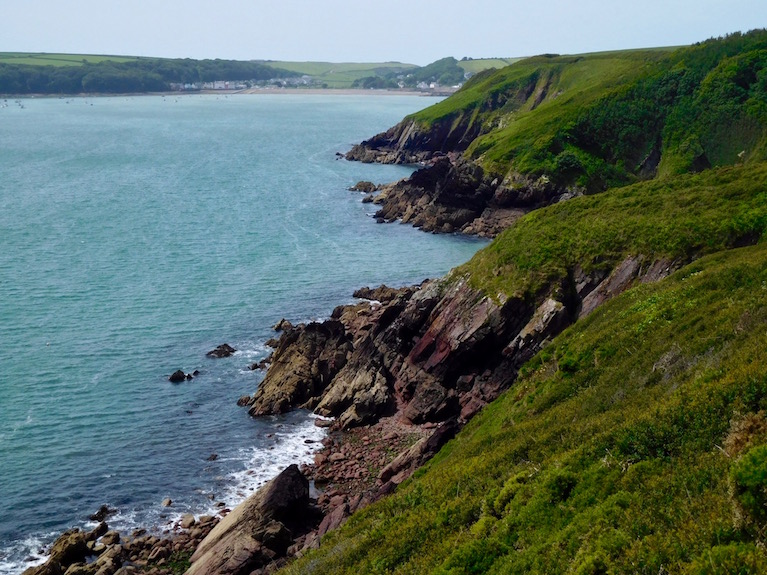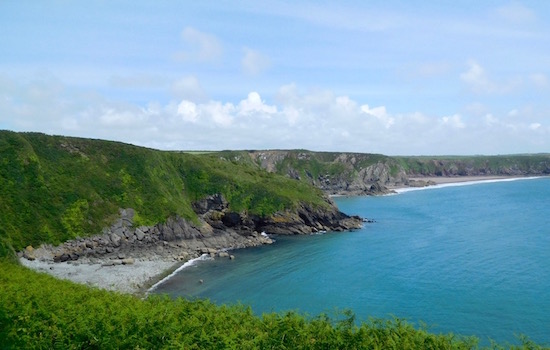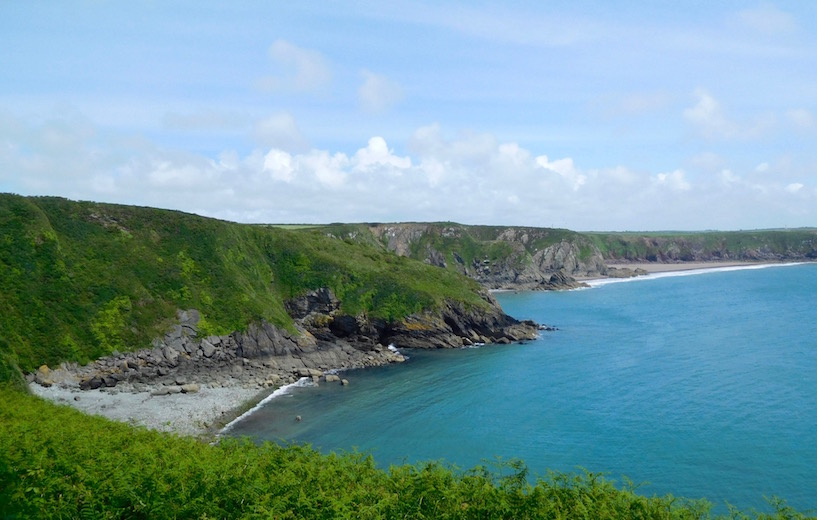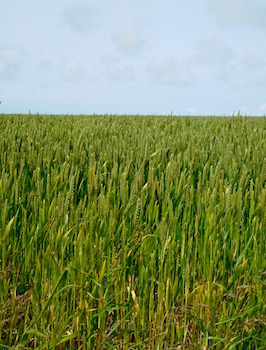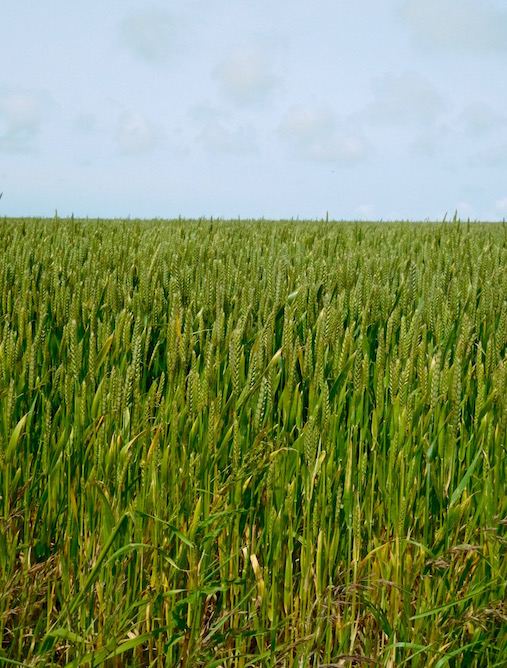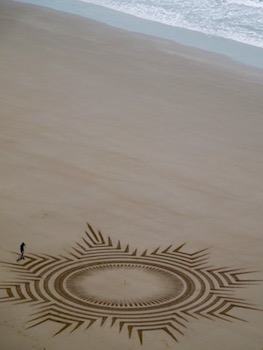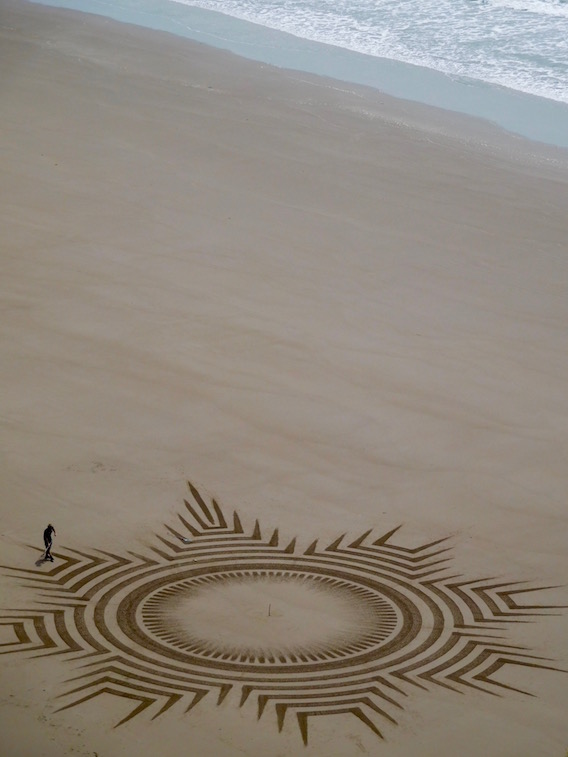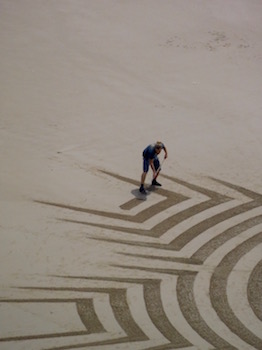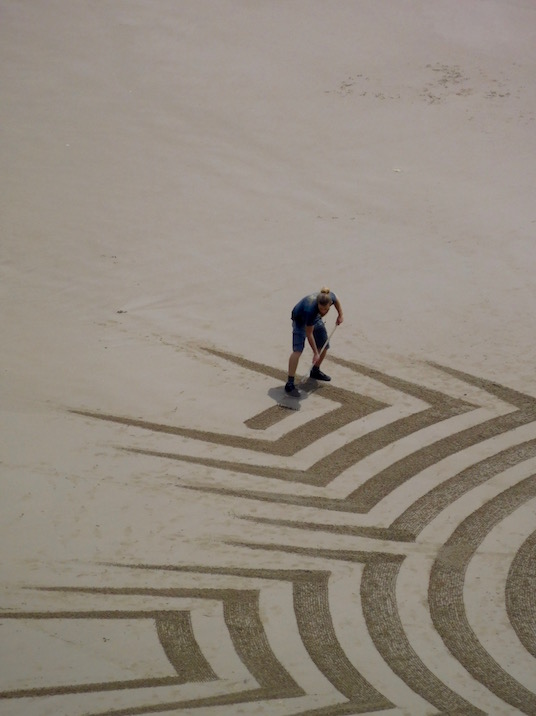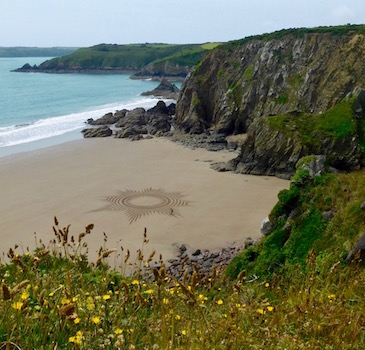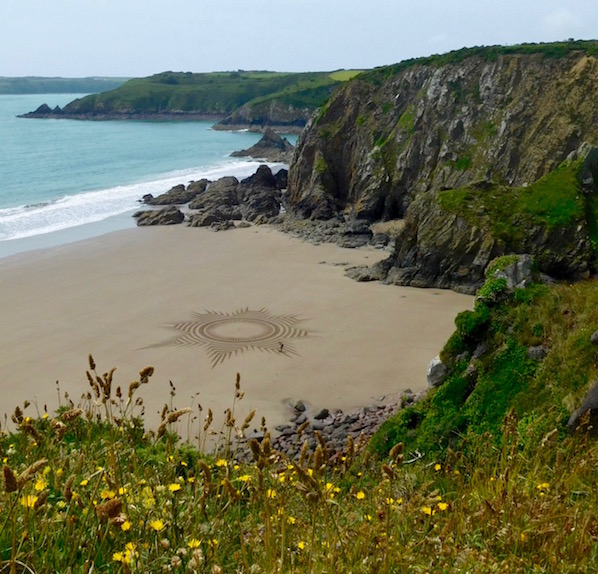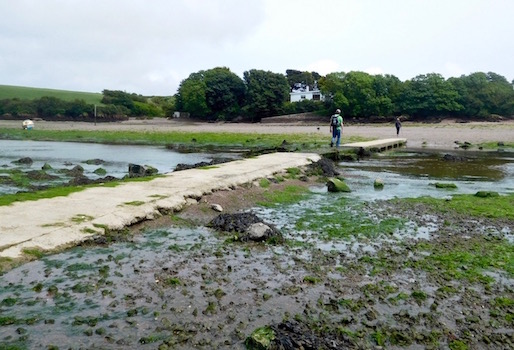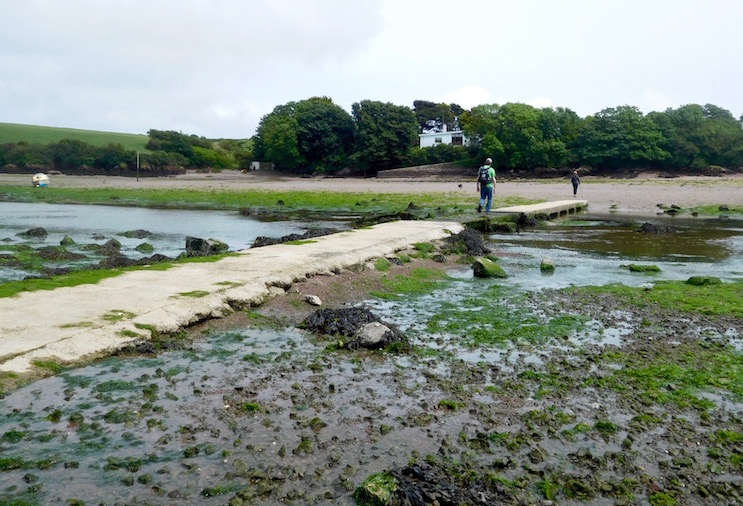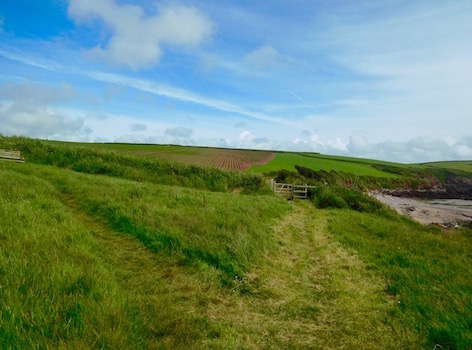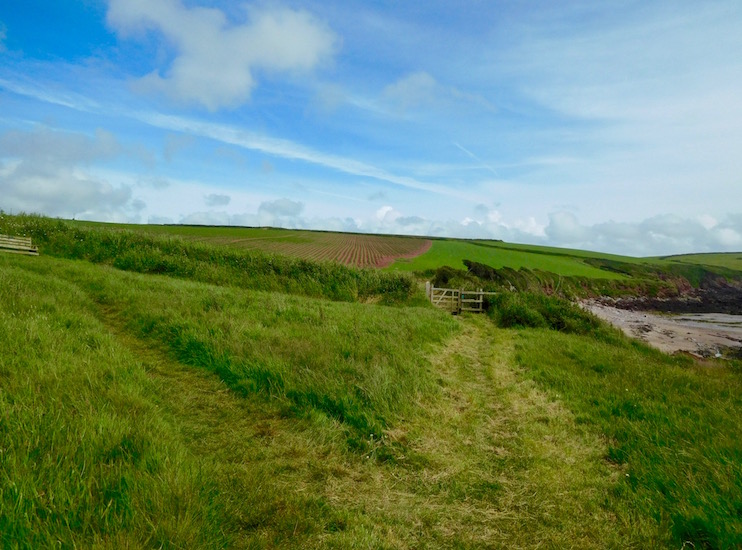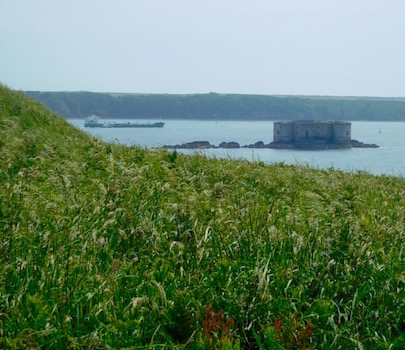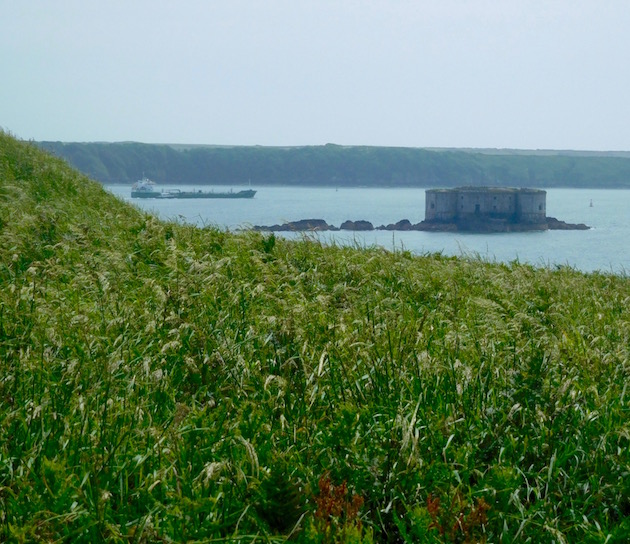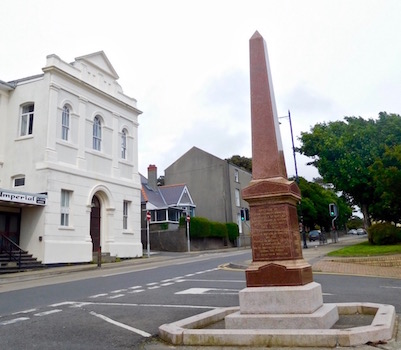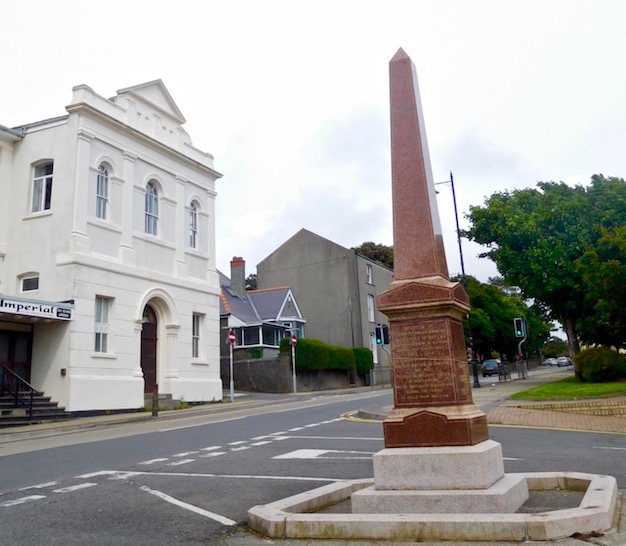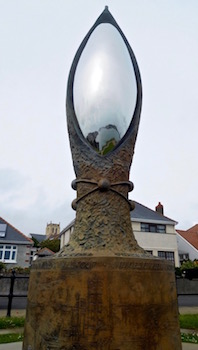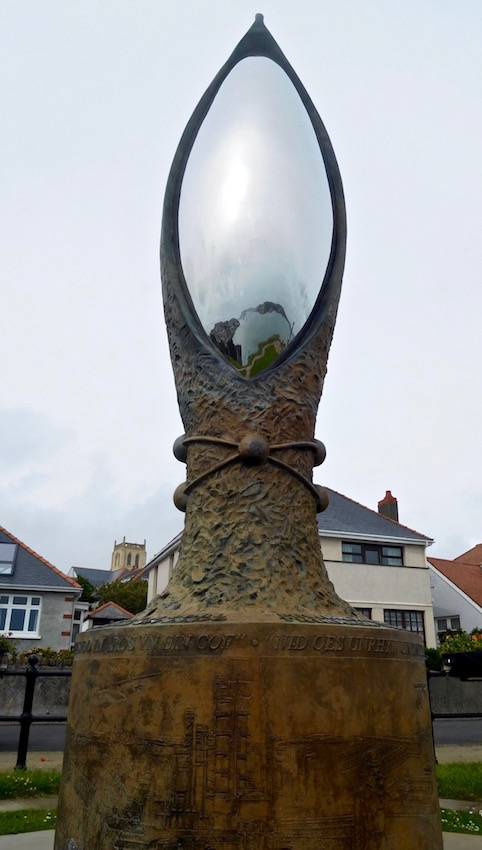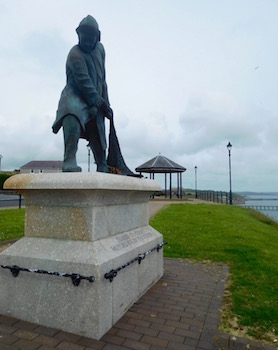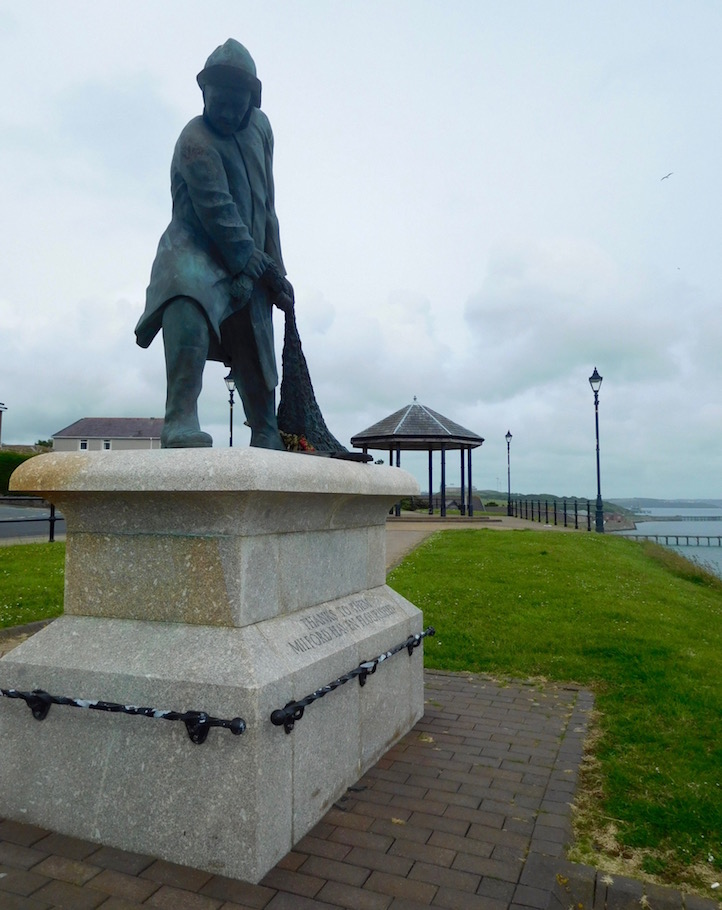Day 23
Musselwick to Milford Haven: 10 miles
Dedication: The people of Nantucket
Reason: Did you know your ancestors founded a town in Wales?
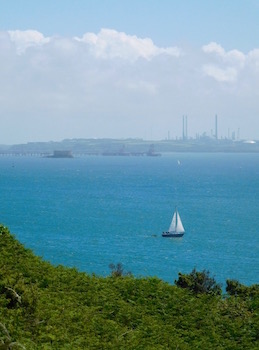
Finally here - industrial landscapes
So for a long time people have been 'warning' me about hiking around Milford Haven. Industry, industry, industry; oil, oil, oil. Besides the spires off in the distance, some parked oil tankers, and the giant concrete signalling pillars, so far I hadn't run into much of it first hand. Or rather there was a larger proportion of nature to industry.
And as I started off the day at Musselwick (not the same Musselwick as Musselwick Sands near Marloes - at least I think it's not anyway, they're not actually all that far apart. Did I mention yet how confused I'm getting with all the ins and outs of this coastline? I have no idea where I am at this point) the small village/small harbor/small population/small beach feeling continued.
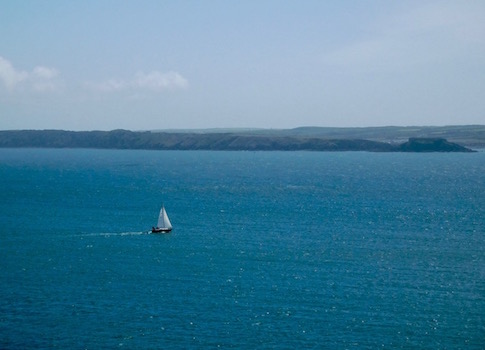
As I moved past Musselwick; Monk Haven with it's red stone wall and blue dragonflies; and St. Ishmael's with it's tiny unexplained hilltop fort, that slowly changed - every time the walk turned south and east, I could see a power station or a refinery or a jetty.
Of course, there was still a lot of beauty. The sailboats I saw made an interesting study of 'what story do you want to tell with this picture'. Crop to the left, and it's an interesting statement, contrasting ugly modern industry (massive refinery) with the serenity of old fashioned pastimes (sailing). Crop to the right and its a picturesque nature scene (sailboat in front of rolling green hills).
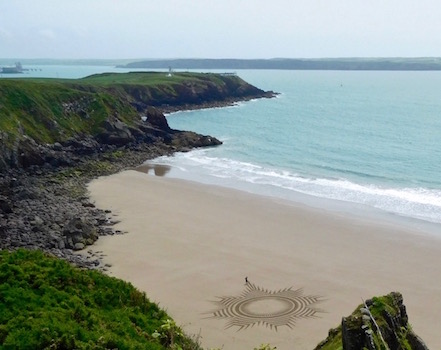
It made me think about how much you can be manipulated by someone else cropping a picture for you rather than being there - its very easy to paint a false picture about what's happening in the world without really doing that much. Want a gathering to look well attended and the speaker to look admired? Take close up shots from a few rows back, with the person speaking above you. Want it to look like no one's there and no one's interested? Stand 20 feet behind the back row, looking down.
Want Milford Haven to look like an industrial area destroying nature? Use the picture with the refinery in the background. Want Milford Haven to look like a beauty spot? Use the sailboat and rolling hills picture. Better yet, use the picture of the artist I discovered making the coolest sand artwork I've ever seen. I'll digress from my digression to admit that I literally whistled down and clapped for him - it makes me so happy to know that someone is dedicating time and effort to make something that interesting - even though the whole thing would be washed away at high tide.
So if you're wondering whether I think the Milford Haven area is beautiful nature, or if it's ugly industry, I'll say that like pretty much everything else in the world, it's complicated. Really, I'd say it's both - and I can't say I found the industry entirely un-awe-inspiring. When I first turned the corner to see the giant T shaped jetty covering pipes carrying (. . .oil? LNG? something anyway) my first thought wasn't 'ick', it was more 'Wow, so that's how this works' and 'That thing's huge' and 'I can't believe people built that' and 'So this is what we make necessary in the name of electricity and energy' and finally 'I bet that in 150 years, when this place is out of business and the jetty is all rusting and in pieces and covered in giant vines and seabirds are living in, people will flock here to marvel at this. It'll be just like Porthgain. I wonder if they'll have really good fish and chips for tourists here too.'
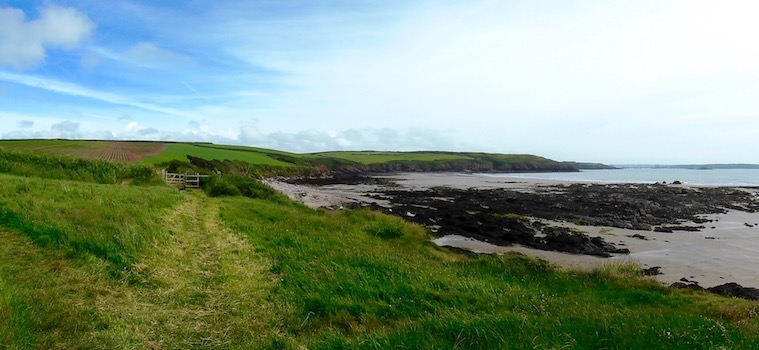
Ignoring the fish and chips comment, it really is interesting that we seem to idealize old structures and buildings and towns and things. It's like in the movie version of 'The Motorcycle Diaries' (it may be in the book too but I don't remember) where Ernesto che Guevara, aka Gael Garcia Bernal aka the most gorgeous man in existence who to me can do no wrong except for this one thing (GGB not ECG) is in Macchu Picchu. Of course this is before everyone and their mother is spending the day on hilltops in Peru, and he and his friend are there entirely alone. Struck by the beauty of the place, he makes a segue by saying something along the lines of 'How could humans go from making something like this [scene of Macchu Picchu] to this [Cut to chaotic smoke and dirt and motorcycle filled Valparaiso City].' - i.e. we've totally and completely degraded from and/or destroyed what was an ideal society.
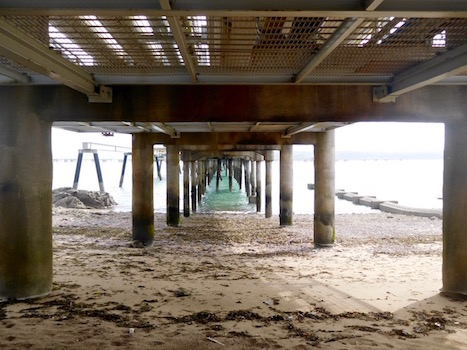
Here's my problem with this, and it's my problem today too. My opinion is that the difference between Macchu Picchu and Valparaiso isn't entirely about humanity getting worse. It's actually that the people all died, and the city is empty, so all you see are beautiful hills and empty houses. If everyone in Valparaiso died (I've never been to Valparaiso, I'm not 100% certain it was Valparaiso in this reference, and I certainly wish no such thing to happen to its people), and all the dirt washed away, over time, Valparaiso would also be beautiful, peaceful, and silent.
To put it another way - I sincerely doubt that when Macchu Picchu was full of people, animals, and potatoes, that it was entirely clean and peaceful and wonderful. Yes it was set in gorgeous scenery - but so are many places. We seem to picture people idyllically growing their 1000 different types of potatoes (thank you to Michael Pollen for giving me that piece of information), weaving their alpaca sweaters, and somehow being quiet and clean and altogether the most charming and happiest people ever. Maybe it was that way - but maybe that's just our imagination ignoring the fact that people would have needed to use the bathroom just as much as today, and wouldn't have had plumbing. That alpacas are dirty, as is every single other animal people in that town would have needed to survive. Heck even potatoes are dirty. And there would have been people, noisy noisy people doing noisy noisy people things, unlike the peaceful serenity of a people-less Macchu Picchu.
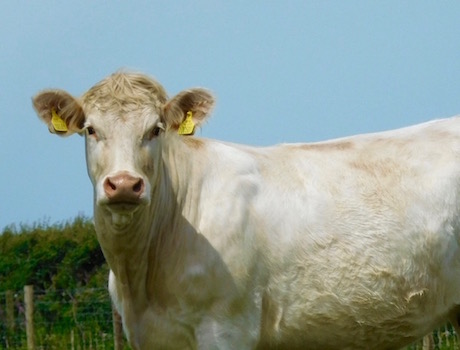
Wait, am I in Wales or Peru?
Anyway, that was a tangent and a half, but my point is that we never seem to recognize the beauty and interest of things around us, generally assuming that at some idealized point things were 'better'. This feeling is particularly evoked by seeing old man-made things when the old man is no longer around. Here in Milford Haven, I'm hiking past oil refineries and jetties and wouldn't it have been nice to have been here before this became the second largest oil port in Europe. Before the giant oil spill in 1996. Before the controversy over additional LNG terminals. When Admiral Lord Nelson called this, one of the largest natural bays in the world, the 'Finest Port in Christendom.' When in the late 18th century a whole slew of Nantucket Quakers became the first investors in the harbor development project Charles Greville had taken up for his uncle Lord Hamilton who owned the land, building a whaling fleet and supplying all the whale oil for the towns' street lighting.
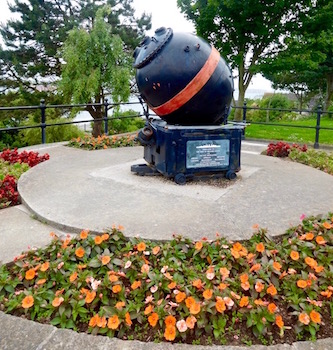
But you know what smells? Giant whale carcasses.
All this is to say that, as I ended my walk going through Milford Haven, past the bowling alley, the (I kid you not) Martha's Vineyard Free House, the somewhat worse for wear terrace over the harbor, past the 'Water Gardens' and reading all the memorials - to fishermen, WWII mine-layers, to the people of Ostend who were living here in exile in WWII, and to the recent victims of what I assume was a refinery related disaster (the memorial wasn't explicit), I had a very hard time not finding the town interesting and beautiful, in its own way.

